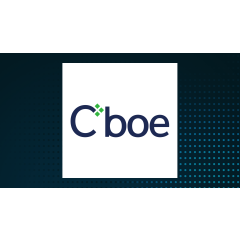URGENT UPDATE: A growing number of users are making a significant switch from Google Chrome to the newly popular Zen browser, driven by pressing concerns over data privacy and system performance. This shift is happening as more individuals seek a reliable, open-source alternative that prioritizes user control and efficiency.
The Zen browser, which is fully open-source and built on the Mozilla Gecko engine, has gained traction for its modern interface and productivity features. As concerns mount over Google’s data harvesting practices, users are eager for a browser that respects their privacy while enhancing their browsing experience.
Zen offers a sleek, user-friendly design that replaces the traditional top-tab layout with a vertical tab sidebar. This innovative move maximizes vertical space, crucial for viewing web content, and is being hailed as a major productivity hack. Users have noted that while Chrome’s interface feels dated, Zen’s dynamic and customizable layout offers a refreshing alternative.
In addition to its aesthetic appeal, Zen is packed with features designed to streamline user workflows. The built-in Workspaces function allows users to categorize tabs efficiently, while the Split View feature enables side-by-side browsing for research or shopping. These enhancements are proving to be a significant step forward in the browser wars.
Another essential aspect driving this transition is Zen’s robust extension support. Users transitioning from Chrome need not fear losing their favorite tools; Zen offers access to the comprehensive Mozilla Add-ons library, ensuring that vital extensions like password managers and productivity apps remain available.
Zen’s commitment to user privacy is underscored by its status as a completely FOSS (Free and Open Source Software) project. This transparency is appealing to those disillusioned with browsers that still rely on the Chromium base controlled by Google. The Gecko engine has made remarkable advancements, often outperforming Chromium-based browsers while using less system memory.
As of today, users are reporting overwhelming satisfaction with Zen’s functionality. The browser’s essential features, such as customizable keyboard shortcuts and a built-in screenshot tool, are designed to minimize distractions and enhance focus. The reader mode is particularly noted for its ability to remove unwanted elements from web pages, allowing users to tailor their viewing experience.
The buzz around Zen is not just about functionality; it’s about reclaiming control over one’s digital environment. Users express excitement over the prospect of Zen expanding to mobile platforms, where a seamless experience could further challenge Chrome’s dominance.
With the shift to Zen, users are not merely swapping browsers; they are embracing a tool designed for modern web demands. As the push for privacy and efficiency continues to grow, it’s clear that the Zen browser is a formidable contender in the fight against complacency in web browsing.
Stay tuned for more updates as Zen develops and expands its offerings. The browser landscape is changing rapidly, and this shift marks a pivotal moment for users prioritizing privacy and productivity.



































































